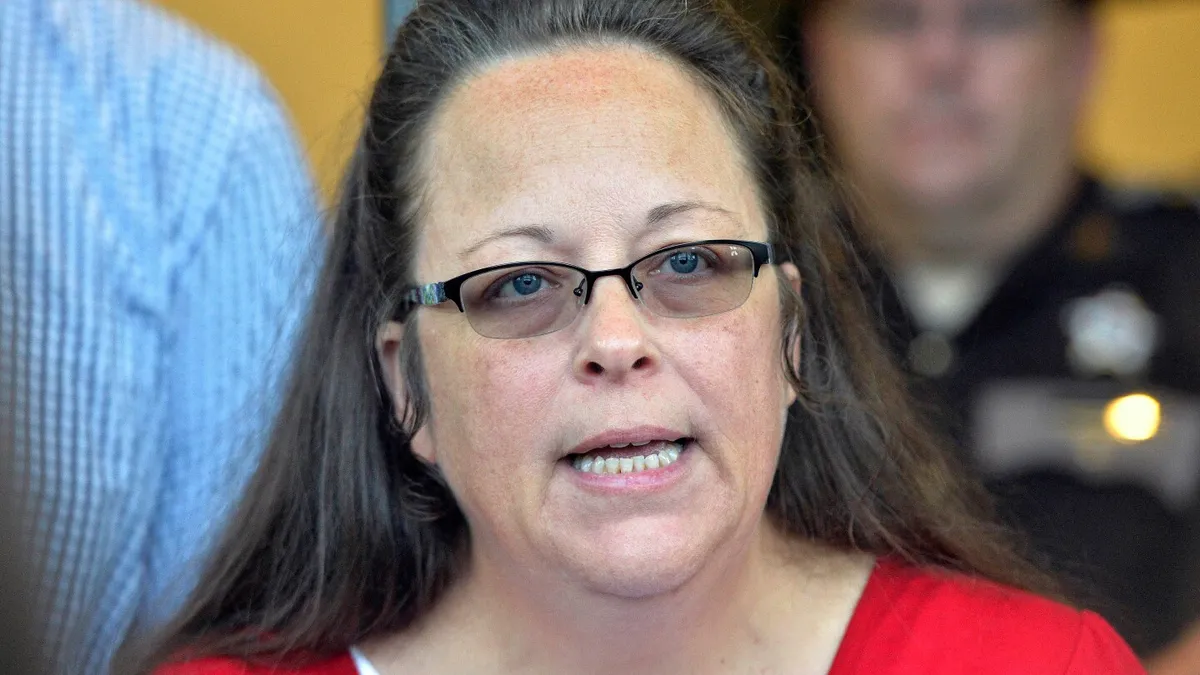
In a significant development for LGBTQ+ rights, the Supreme Court of the United States is set to hold a closed-door conference this Friday, where the potential overturning of the historic decision that legalized same-sex marriage nationwide will be discussed. This meeting will include a longshot appeal from Kim Davis, the former Kentucky court clerk known for her refusal to issue marriage licenses to same-sex couples following the pivotal 2015 ruling in Obergefell v. Hodges.
Kim Davis gained national attention when she denied marriage licenses to same-sex couples, citing her religious beliefs as the reason for her actions. Following the Supreme Court's ruling in 2015, which affirmed the right to same-sex marriage, Davis faced legal repercussions. She is currently seeking to have a lower court's order overturned, which mandates her to pay a substantial sum of $360,000 in damages and attorney’s fees to a couple she denied a marriage license.
The Supreme Court justices could announce their decision regarding whether to take up Davis' case as early as Monday. In their arguments, Davis' legal team has repeatedly referenced the sentiments of Justice Clarence Thomas, who stands out as the only justice advocating for the reversal of the same-sex marriage ruling. Thomas, who dissented in the Obergefell case, is joined by Chief Justice John Roberts and Justice Samuel Alito, both of whom also dissented in 2015. While Roberts has remained silent on the matter since then, Alito has voiced criticism of the ruling but clarified that he is not actively pushing for its reversal.
Justice Amy Coney Barrett, who was not part of the court during the 2015 decision, has indicated that there are instances when the court should rectify its previous mistakes, as demonstrated in the recent 2022 case that rescinded the constitutional right to abortion. However, she has also suggested that the context of same-sex marriage might differ from that of abortion, particularly because many individuals have built their lives around the decision, marrying and starting families based on its protections.
Davis' actions in Rowan County, Kentucky, sparked widespread controversy and debate about the intersection of religious freedom and the rights of same-sex couples. After defying federal court orders to issue marriage licenses, she was jailed for contempt of court in September 2015. Ultimately, she was released after her staff complied with issuing the licenses on her behalf, albeit without her name on the forms. In response to the controversy, the Kentucky Legislature later passed a law to remove the names of all county clerks from state marriage licenses, aiming to minimize the personal conflict between clerks' beliefs and legal obligations.
In the wake of these events, Davis lost her bid for reelection in 2018. The forthcoming Supreme Court conference could have profound implications for the future of same-sex marriage rights in America, as the justices deliberate on whether to revisit this landmark ruling.